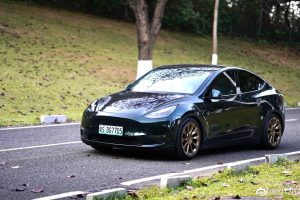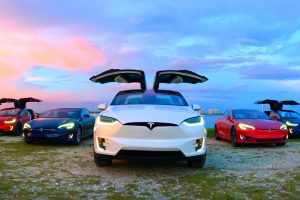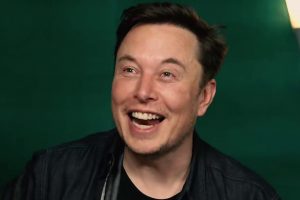- 🚗 Martha Stewart is a fan of Tesla and other EV companies like Rivian.
- 👩🍳 Stewart mentioned she’s “pissed” at Elon Musk despite being an investor in major tech stocks.
- 🔙 She suggested Musk “better get back to work in certain areas.”
- 🌱 Stewart is a strong supporter of electric vehicles for their environmental benefits.
- 📺 Stewart spoke in an interview with CNBC about her EV support and criticism of Musk.
- 😐 It’s unclear what Stewart specifically meant regarding Musk needing to refocus.
- 💼 Investors have mixed reactions to Musk’s focus on other businesses and political views.
- 💰 Despite criticism, Musk’s $56 billion pay package was ratified at the latest Shareholder Meeting.
As a celebrated personality in the realm of homemaking and entrepreneurship, Martha Stewart’s opinions carry significant weight. Recently, Stewart made headlines not for her culinary skills but for her forthright views on Elon Musk and electric vehicles (EVs). In this blog post, we’ll delve into Stewart’s evolving relationship with Tesla and Musk, her steadfast support for EVs, and the broader implications for investors and the EV industry.
Martha Stewart: A Champion of Electric Vehicles
Martha Stewart has long been an advocate for sustainability and innovation. Her support for electric vehicles is no exception. Stewart’s interest in EVs extends beyond Tesla; she also praises other electric vehicle companies, including Rivian. Her advocacy is rooted in the environmental benefits and technological advancements that electric vehicles offer.
Stewart’s EV Collection
Stewart isn’t just talking the talk; she’s walking the walk:
- Mercedes-Benz EQS: Currently, she owns an EQS, showcasing her commitment to luxury and sustainability.
- Rivian R1T: On order, adding to her burgeoning fleet of environmentally friendly vehicles.
Criticism of Elon Musk: A Mixed Bag
Despite her initial admiration for Tesla, Stewart has recently expressed frustration with Elon Musk. During an interview with CNBC, she did not hold back, stating, “I have been an investor in Google, Apple, the big tech stocks. Tesla, I loved Tesla. I’m pissed at Elon Musk.” Her dissatisfaction seems to stem from Musk’s divided focus and his political engagements rather than Tesla’s performance or product quality.
What Does “Back to Work” Mean?
Stewart suggested Musk “better get back to work in certain areas,” although she did not specify what she meant by this. Here are a few possible interpretations:
- Focus on Tesla: Investors and supporters might want Musk to concentrate more on Tesla’s core business rather than his other ventures like SpaceX or X (formerly Twitter).
- Political Neutrality: Musk’s vocal political views have been polarizing, potentially alienating some investors.
- Operational Improvements: There may be specific areas within Tesla that Stewart believes need more attention, whether that be production, innovation, or customer service.
The Investor Perspective
Musk’s leadership style and diverse business interests spark a variety of opinions among investors:
- Support: Many trust Musk’s visionary approach and are willing to ride out the volatility, as evidenced by the ratification of his $56 billion pay package at the latest shareholder meeting.
- Criticism: Others, like Stewart, show concern that his divided attention could negatively impact Tesla’s growth and stability.
Financial Considerations
While Stewart’s critique is notable, it’s essential to weigh it against broader investor sentiment:
- Shareholder Approval: Despite mixed feelings, Musk’s recent pay package ratification indicates robust investor support.
- Future Prospects: Tesla continues to be a leader in the EV market, contributing to its strong stock performance over the years.
The Future of Electric Vehicles
Stewart’s support extends beyond Tesla, highlighting a broader trend in consumer and investor interest towards electric vehicles. Her remarks underscore the importance of sustainability and innovation, urging more people to consider EVs for their environmental benefits. Musk’s multifaceted focus might inspire more competition and innovation in the industry, but it also raises questions about maintaining leadership and operational excellence.
Conclusion
Martha Stewart’s recent commentary on Elon Musk and electric vehicles sheds light on a complex narrative of admiration, criticism, and expectation. As an avid supporter of EVs, Stewart’s opinions resonate with both fans and critics alike, highlighting the nuanced relationship between innovation, leadership, and investor expectations.
As the electric vehicle market continues to expand, leaders like Musk must balance their visionary pursuits with the practical demands of their core business. Stewart’s constructive criticism serves as a reminder that even the most forward-thinking leaders need to remain grounded and focused to sustain their success.





